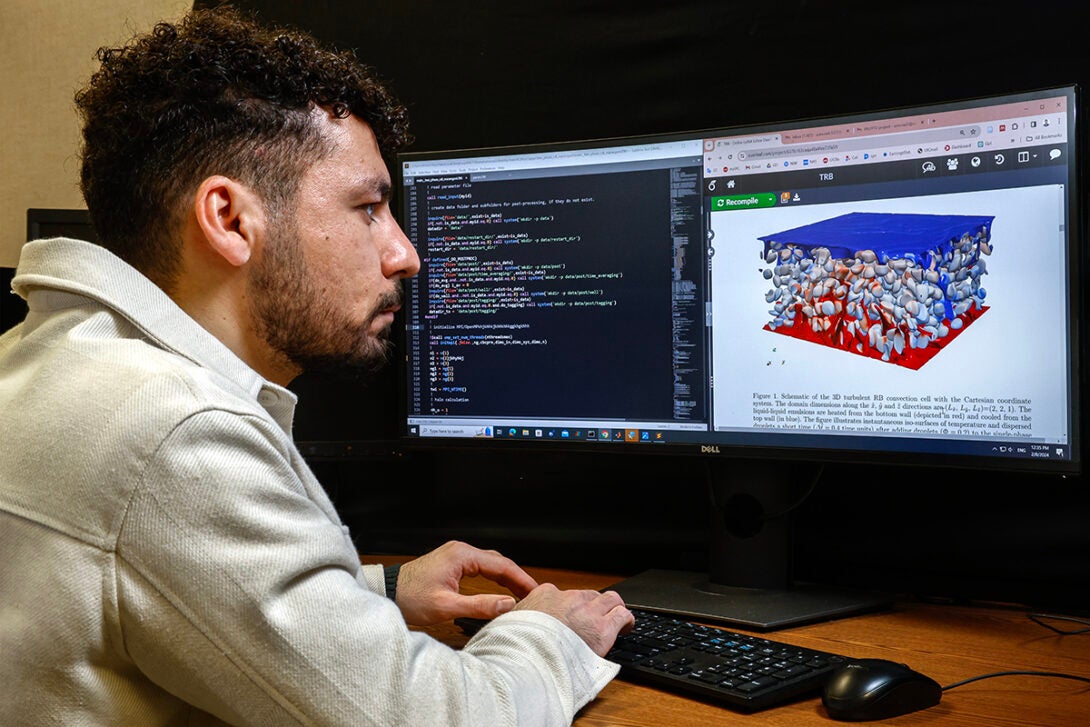Understanding emulsions for everyday use
1

Imagine two liquids – like oil and water – inside a container. When the bottom is heated and the top is cooled, the liquids move in swirling patterns, similar to how boiling water behaves. However, in many real-world materials, the liquids aren’t entirely separate and form tiny droplets dispersed throughout the mixture, creating an emulsion.
Emulsions are all around us in everyday items, and figuring out how heat moves through these emulsions and how it influences the motion of the droplets is the focus of the research of Associate Professor Parisa Mirbod and her team in The Mirbod Lab at UIC.
“This understanding is important for industries like pharmaceuticals, where heat can control how fast a drug is released; food production, where it affects texture and cooking processes; cosmetics, where it influences product stability; and oil extraction, where heating helps separate oil from water. Our work provides the scientific foundation for improving efficiency and quality in all these industries,” said PhD student Abbas Moradi Bilondi, who works with Mirbod.
The team’s research was recently featured in the prestigious Journal of Fluid Mechanics.
Industries using emulsions rely on a deep understanding of how heat affects the stability and movement of the droplets within emulsions to provide new insights into these processes, enabling more effective and sustainable production methods.
“This research could transform multiple industries by reducing production costs and contributing to the development of higher-quality, more reliable products,” Bilondi said. “Our study bridges the gap between theoretical models and practical applications, shedding new light on how emulsions behave.”
In addition to studying the intricate physics of emulsions and connecting theoretical research to the real world, Bilondi is grateful for the guidance he receives from Mirbod.
“Each project challenges me to think deeply and creatively about fluid dynamics while working toward solutions that can benefit society,” he said. “I also value the collaborative environment and the mentorship of my advisor, Dr. Parisa Mirbod, who encourages innovative thinking and supports my growth as a researcher.”